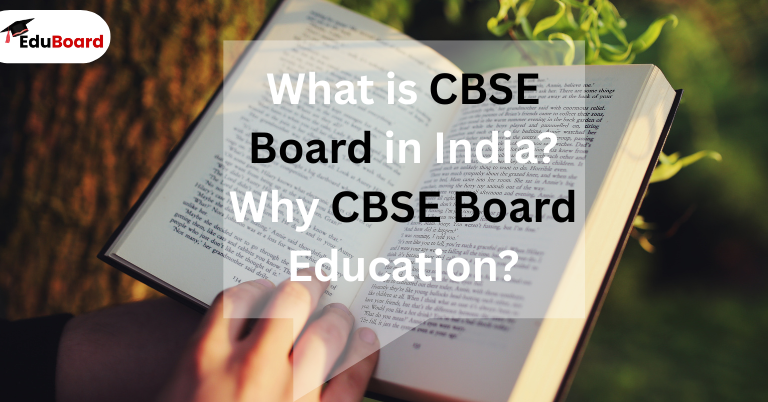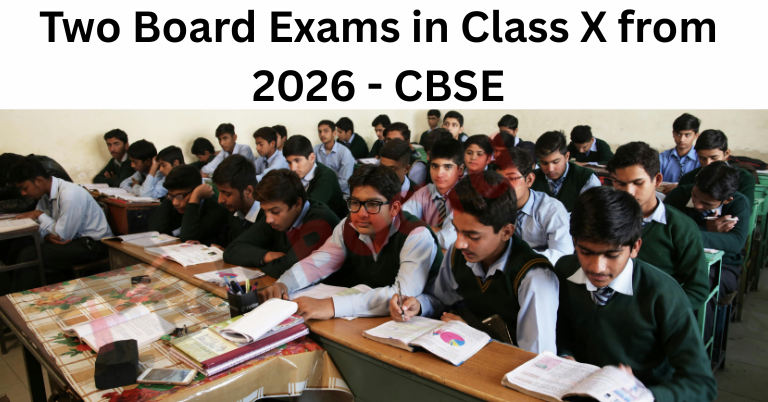Home / CBSE Board / What is CBSE Board in India? Why CBSE Board Education?
What is CBSE Board in India? Why CBSE Board Education?
Discover what the CBSE Board is, its key features and why it's one of the most preferred education boards in India. Learn how CBSE benefits students academically and in competitive exams.

In India, choosing the right education board is one of the most crucial decisions for parents and students. Among the many boards available, the Central Board of Secondary Education (CBSE) stands out as one of the most popular and widely accepted education boards. But what exactly is the CBSE Board, and why is it considered a strong choice for students?
What is CBSE?
The Central Board of Secondary Education (CBSE) is a national-level education board for public and private schools in India. It operates under the Ministry of Education, Government of India.
Key Facts About CBSE:
-
Established in 1962
-
Headquartered in New Delhi
-
Follows the NCERT (National Council of Educational Research and Training) curriculum
-
Conducts exams for Class 10 and 12 across India
-
Focuses on a uniform education system across the country
Features of CBSE Education
CBSE is known for its structured and student-friendly approach to learning. Below are the major features of CBSE education:
-
Nationally recognized and widely accepted
-
Focus on conceptual learning rather than rote memorization
-
Emphasis on STEM education (Science, Technology, Engineering, and Math)
-
Curriculum aligned with competitive exams like JEE, NEET
-
Offers both English and Hindi medium
-
Continuous and Comprehensive Evaluation (CCE) pattern in junior classes
Why Choose CBSE Board Education?
Here are several reasons why CBSE is preferred by a majority of Indian students and parents:
1. Uniform Curriculum Across India
CBSE offers a consistent and standardized curriculum, making it easier for students who transfer between states.
2. Preparation for Competitive Exams
CBSE syllabus is aligned with national-level competitive exams like JEE, NEET, CUET etc., giving students an early advantage.
3. Student-Centric Learning
The board promotes active learning, analytical thinking, and real-life application of concepts.
4. Global Recognition
CBSE certificates are accepted by most colleges and universities in India and abroad.
5. English and Hindi Medium
Students can choose the medium of instruction as per their comfort.
CBSE vs Other Boards – A Comparison
Here’s a comparison table between CBSE and other major boards in India:
| Feature | CBSE | ICSE | State Boards |
|---|---|---|---|
| Curriculum Focus | Concept-based, exam-oriented | Detailed, language-rich | Region-specific |
| Competitive Exam Alignment | High (NEET, JEE) | Moderate | Low to Moderate |
| Medium of Instruction | English & Hindi | English | Mostly regional languages |
| National/Regional Scope | National | National | Regional |
| Syllabus Load | Moderate | Extensive | Varies by state |
| Recognition Abroad | Widely accepted | Well recognized | Limited recognition |
Conclusion
The CBSE Board stands as a reliable and forward-looking option for school education in India. With a curriculum designed to build strong academic foundations and prepare students for future challenges, CBSE remains a top choice for families across the country. Whether your child aims for competitive exams or a balanced academic life, CBSE offers the tools and platform to support their journey.
Newsletter
Subscribe to our newsletter and get our newest updates right on your inbox.
Latest News
-

NIOS Admission 2024-25 (Class 10th & 12th): Last Date, Fees, How to Apply
- 3 days ago
- 0 Comments
-

Two Board Exams in Class X from 2026 - CBSE
- 3 days ago
- 0 Comments
-

UP Board Affiliation 2025: Last Date Extended Till 30th June
- 3 days ago
- 0 Comments





Comments